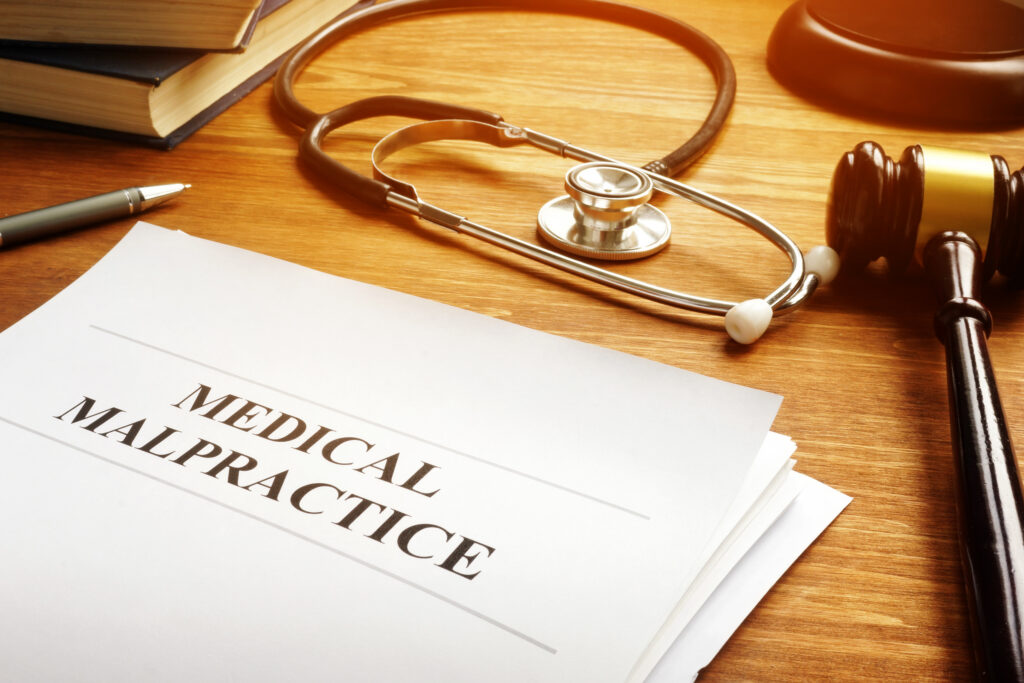Nurse practitioners (NPs) are an essential part of the healthcare system, providing critical care to patients across Pennsylvania. With the increasing autonomy of NPs, there is also a rise in malpractice claims. Understanding the legal risks, malpractice laws, and available defense strategies is crucial for both nurse practitioners and patients.
This guide will explore the legal landscape of NP malpractice in Pennsylvania, including liability risks, common lawsuits, defense strategies, malpractice insurance requirements, and the career impact of malpractice claims.
Understanding Pennsylvania Malpractice Laws for Nurse Practitioners
What is Medical Malpractice?
Medical malpractice occurs when a healthcare provider fails to meet the standard of care, leading to patient harm. In Pennsylvania, a malpractice claim must establish four critical elements:
- The NP had a duty of care toward the patient.
- The NP breached that duty by acting negligently.
- The breach directly caused the patient’s injury.
- The patient suffered damages as a result.
How is NP Negligence Defined in Pennsylvania?
Pennsylvania law assesses nurse practitioner negligence by considering the NP’s education, experience, and compliance with professional guidelines. The law holds NPs accountable for their actions, particularly in cases where they exceed their scope of practice or fail to meet expected standards of care.
Many NPs in Pennsylvania work under collaborative practice agreements with physicians, which can complicate legal liability. If an NP makes an error while working under such an agreement, both the NP and the supervising physician may be held responsible.
Standard of Care for Nurse Practitioners in PA
The standard of care is a crucial factor in malpractice cases. Courts evaluate whether the NP acted as a competent provider would under similar circumstances. The standard is determined by reviewing:
- The NP’s level of clinical experience and specialty.
- National and state practice guidelines.
- Institutional policies and protocols.
If an NP fails to meet the expected standard of care, they may be held liable for malpractice.
Common Malpractice Claims Against Nurse Practitioners
Misdiagnosis and Delayed Diagnosis
One of the most frequent malpractice claims against NPs is failure to diagnose or misdiagnosis of a medical condition. If an NP incorrectly identifies an illness or delays a diagnosis, it can result in severe consequences for the patient.
For example, a Pennsylvania NP once misdiagnosed heart disease as acid reflux. The patient later suffered a fatal heart attack, and the family sued for malpractice, claiming the NP failed to recognize critical warning signs.
Medication and Prescription Errors
NPs in Pennsylvania have prescriptive authority, but medication errors are a common cause of malpractice lawsuits. Mistakes include:
- Prescribing the wrong medication.
- Administering incorrect dosages.
- Failing to check for harmful drug interactions.
Errors with opioids and controlled substances, in particular, have led to malpractice cases against NPs in Pennsylvania.
Failure to Refer to a Physician or Specialist
NPs are trained to handle a variety of medical conditions, but some cases require specialized care. Malpractice lawsuits often arise when an NP:
- Fails to refer a patient to a specialist when necessary.
- Delays ordering critical diagnostic tests.
- Manages a complex case beyond their scope of expertise.
Poor Documentation and Communication Issues
Medical records serve as critical evidence in malpractice cases. Incomplete documentation or failure to record patient interactions can weaken an NP’s legal defense. Common documentation errors include:
- Missing patient history details.
- Failing to document informed consent.
- Poor communication between NPs and other healthcare providers.
Can Nurse Practitioners Be Sued for Malpractice in Pennsylvania?
NP Liability vs. Physician Liability
While physicians historically faced the most malpractice lawsuits, nurse practitioners are now increasingly sued for malpractice. Pennsylvania law allows patients to file lawsuits directly against NPs if negligence is suspected.
NP liability differs from physician liability in that NPs often work under collaborative agreements, where their supervising physician may also be implicated in a lawsuit. However, if an NP acts independently or outside their scope of practice, they can be personally liable for malpractice.
Example: Pennsylvania NP Malpractice Case
A Pennsylvania NP faced a lawsuit after failing to diagnose a patient’s cardiac condition. The patient later suffered a fatal heart attack, and the family pursued legal action. The court ruled in favor of the plaintiff, finding that the NP’s failure to order necessary tests contributed to the patient’s death.
Legal Defense Strategies for Nurse Practitioners
Proving Adherence to the Standard of Care
One of the strongest legal defenses in a malpractice case is proving that the NP followed accepted medical standards. If an NP can demonstrate that their actions were consistent with established guidelines, they may avoid liability.
The Role of Expert Witnesses
Expert witnesses play a critical role in NP malpractice cases. These professionals testify about:
- Whether the NP’s actions were reasonable.
- Whether the standard of care was met.
- How the NP’s decisions affected the patient’s outcome.
A strong expert witness can help dismiss a case or lead to a more favorable ruling.
How Detailed Medical Records Strengthen a Legal Defense
Complete and accurate medical documentation is a key defense tool. Courts rely on medical records to evaluate whether an NP:
- Provided appropriate care.
- Ordered necessary tests.
- Properly informed the patient about treatment options.
NPs should maintain thorough documentation to reduce their legal risks.
Malpractice Insurance for Nurse Practitioners in Pennsylvania
Do NPs Need Malpractice Insurance?
Pennsylvania law does not require NPs to have individual malpractice insurance, but many employers mandate it. Having personal coverage is highly recommended to protect against financial losses.
Employer vs. Individual Malpractice Policies
Employer-provided malpractice insurance often has coverage limits and may not fully protect an NP. Individual policies offer additional protection, including coverage for:
- Independent practice.
- Legal defense costs.
- Damages beyond employer coverage limits.
A standard NP malpractice policy in Pennsylvania typically provides $1 million per claim and $3 million in total coverage.
Statute of Limitations for Malpractice Cases in Pennsylvania
Filing Deadlines for Malpractice Claims
Under Pennsylvania law, a malpractice lawsuit must be filed within two years from the date of injury. However, exceptions apply, including:
- The Discovery Rule, where the time limit starts when the patient discovers the malpractice.
- Cases involving minors, where the deadline extends until the patient’s 20th birthday.
How Malpractice Lawsuits Impact NP Careers
License Suspension and Revocation
The Pennsylvania State Board of Nursing can suspend or revoke an NP’s license if they face repeated malpractice claims or are found guilty of gross negligence.
Financial and Professional Consequences
Malpractice lawsuits can result in:
- Financial losses, including legal fees and settlements.
- Damage to reputation, making it harder to find employment.
To minimize risk, NPs should:
- Follow best practices in patient care.
- Maintain detailed medical records.
- Keep up-to-date with state laws and practice guidelines.
Frequently Asked Questions (FAQ) About Nurse Practitioner Malpractice in Pennsylvania
Can a nurse practitioner be sued for malpractice in Pennsylvania?
Yes, nurse practitioners in Pennsylvania can be sued for malpractice just like physicians. If a patient believes they were harmed due to an NP’s negligence, they can file a lawsuit. The claim must establish that the NP failed to meet the standard of care, and that this failure resulted in injury or damages.
What are the most common malpractice claims against NPs?
The most common malpractice claims against nurse practitioners involve misdiagnosis, medication errors, failure to refer a patient to a specialist, and poor medical documentation. These claims often arise when an NP fails to recognize a serious condition, prescribes the wrong medication, delays necessary medical treatment, or does not properly document patient care.
How can a patient prove a nurse practitioner was negligent?
To prove negligence, a patient must show that the NP had a duty of care, breached that duty by acting below the standard of care, and that this breach directly caused harm. Medical records, expert witness testimony, and evidence of deviation from established medical guidelines are often used to support malpractice claims.
What is the statute of limitations for malpractice lawsuits in Pennsylvania?
The statute of limitations for filing a malpractice lawsuit in Pennsylvania is two years from the date of injury. However, under the discovery rule, if a patient was unaware of the malpractice at the time it occurred, the two-year clock begins when they discover or should have reasonably discovered the injury. Minors who experience malpractice have until their 20th birthday to file a lawsuit.
Do nurse practitioners need malpractice insurance in Pennsylvania?
Pennsylvania law does not mandate malpractice insurance for nurse practitioners, but many employers require it. Even if an NP is covered by an employer’s policy, it is often recommended to carry individual malpractice insurance to ensure full protection in case of a lawsuit.
Contact Purchase, George & Murphey, P.C. Today
Understanding Pennsylvania’s malpractice laws is essential for NPs to protect their careers. By following standard care guidelines, obtaining malpractice insurance, and keeping thorough documentation, NPs can reduce their legal risks.
If you are an NP facing a malpractice lawsuit or a patient seeking legal guidance, consulting an experienced medical malpractice attorney can help protect your rights.
If you need legal advice regarding an NP malpractice case in Pennsylvania, contact Purchase, George & Murphey, P.C. today to discuss your options.













